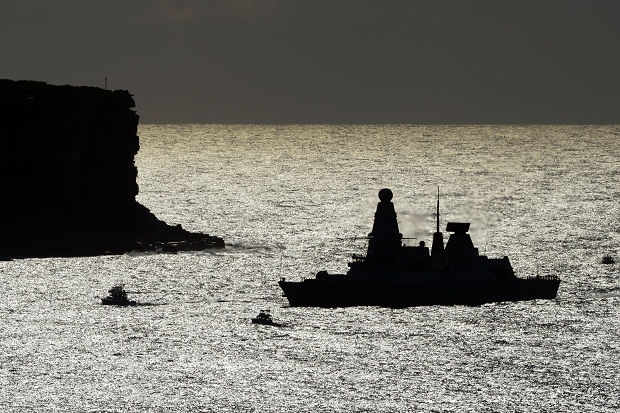First Sea Lord Admiral Sir George Zambellas has said, in the Telegraph, that the sum of the Royal Navy’s parts is not greater than its whole. Scottish independence, he says, would weaken the naval power of the nations of the British Isles. Sir George also appeals to our shared naval history – nearly a third of Nelson’s men at Trafalgar were Scottish, the Grand Fleet was stationed at Scapa Flow and the Soviet menace was monitored from bases in Scotland.
The positive, emotive arguments done, Sir George issues a warning to Scottish voters. In the event of independence, Sir George says that the rump UK’s navy would be able to adapt to its diminished circumstances (a cynic might say that such adaptation has been the navy’s business since the fall of Singapore) but Scotland’s navy would be permanently weakened. In a world of global trade, the argument goes, that is a risk. Furthermore, 16 vessels and more than 3,000 men are stationed in Scotland, directly supported by 2,000 civilians and many thousands more in the supply chain. The implication is that these jobs and investments depend on the United Kingdom’s present defence requirements and are therefore under threat.
Sir George’s arguments are about power (in various forms). Yet there is another way to examine the matter. Respected defence analyst Colonel Stuart Crawford appeared on the Today programme earlier, and said that an independent Scotland’s defence capability would be regional by necessity. The SNP, however, seeks to present this as a matter of choice. Its defence spokesman, Angus Robertson, has said that Scotland houses the Trident deterrent, which it doesn’t want, but has lost the ships, personnel and jobs, which it does want. It follows that Scotland has different defence priorities to the rest of the UK; therefore, independence would enable Scotland to choose its own course.
That is a conceit. The Royal Navy has, in basic numerical terms, been in decline for years; but Scotland and the Clyde have done well from successive settlements, certainly by comparison with Portsmouth, the historic capital of the Royal Navy, where shipbuilding has ended. Angus Robertson is right: this is a question of choice. The British government has chosen to base significant naval resources in Scotland. Any resident of the deprived areas of Portsmouth will tell you that Scotland is very lucky to have them.
Defence Secretary Philip Hammond will be building on Sir George Zembellas’s article later today. Will he attack Robertson’s conceit?






Comments